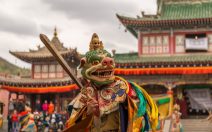Rebkong or Tongren Wutu Festival is an ancient Tibetan religious ritual of ransom offering, probably Bon religion of Tibet, and it only exists in Nyantok Village of Rebkong. Wutu is ransom offering in Hor language. It refers to obstruction of misfortune or ransom ritual. It celebrates on the 20th of 10th month of Chinese (Hor) calendar every year.
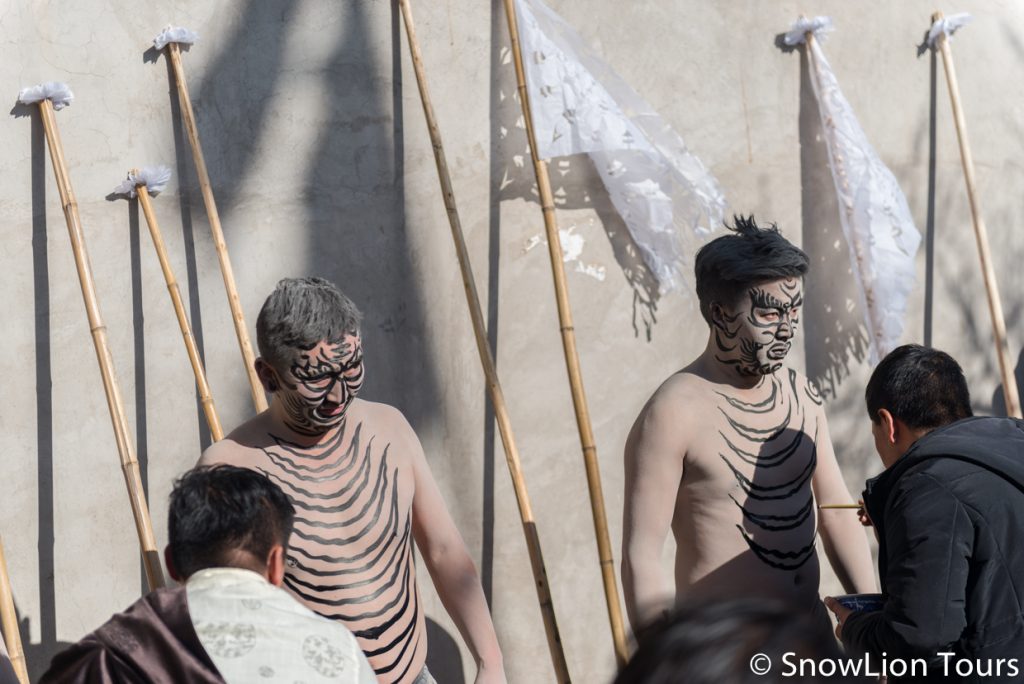
Wutu men are painted in tiger and snow Leopard stripes to prepare for the ritual.
There is a fixed procedure for the festival activities. In the early morning, Ngakpas in the village perform puja inside the temple on the mountain behind the village. Meanwhile, seven young men are elected by the village. Gathered in front of the temple, took off the clothes in the cold wind of the severe winter, and painted the tiger and leopard with stripes on the body and limbs, tied hair with white string and wearing red belt, dressed up as Wutu animal figures.
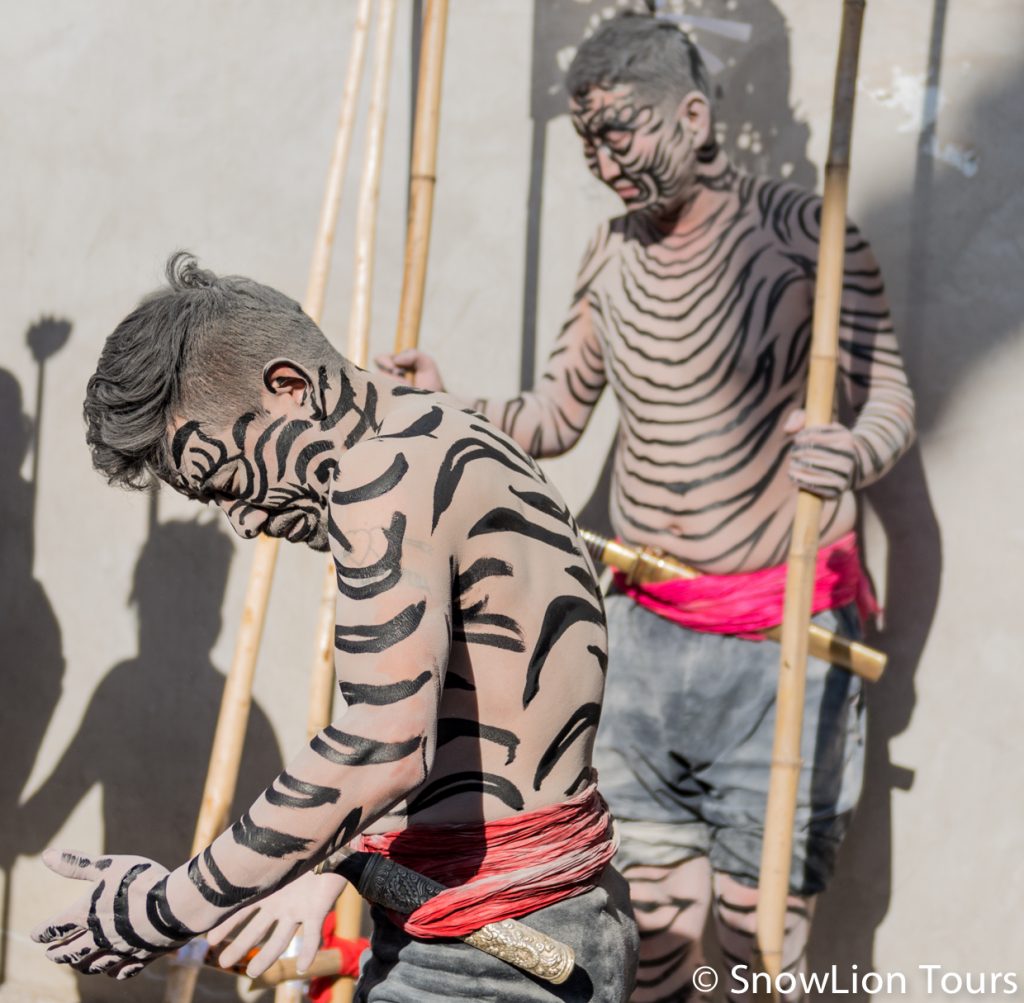
Wutu Men are ready for the ritual performance.
They held a stick of phoenix with a blessing white flag on the top in each of their hands. Under the advise of the Lhawa, they kneel down in front of the temple, recite scriptures after Lhawa, worship the mountain god, and then Lhawa pour liquor in their mouth one by one to make the tiger soul possess Wutu. At this point, these Wutus transform into the demonized dieties who received the power to drive out the epidemic.
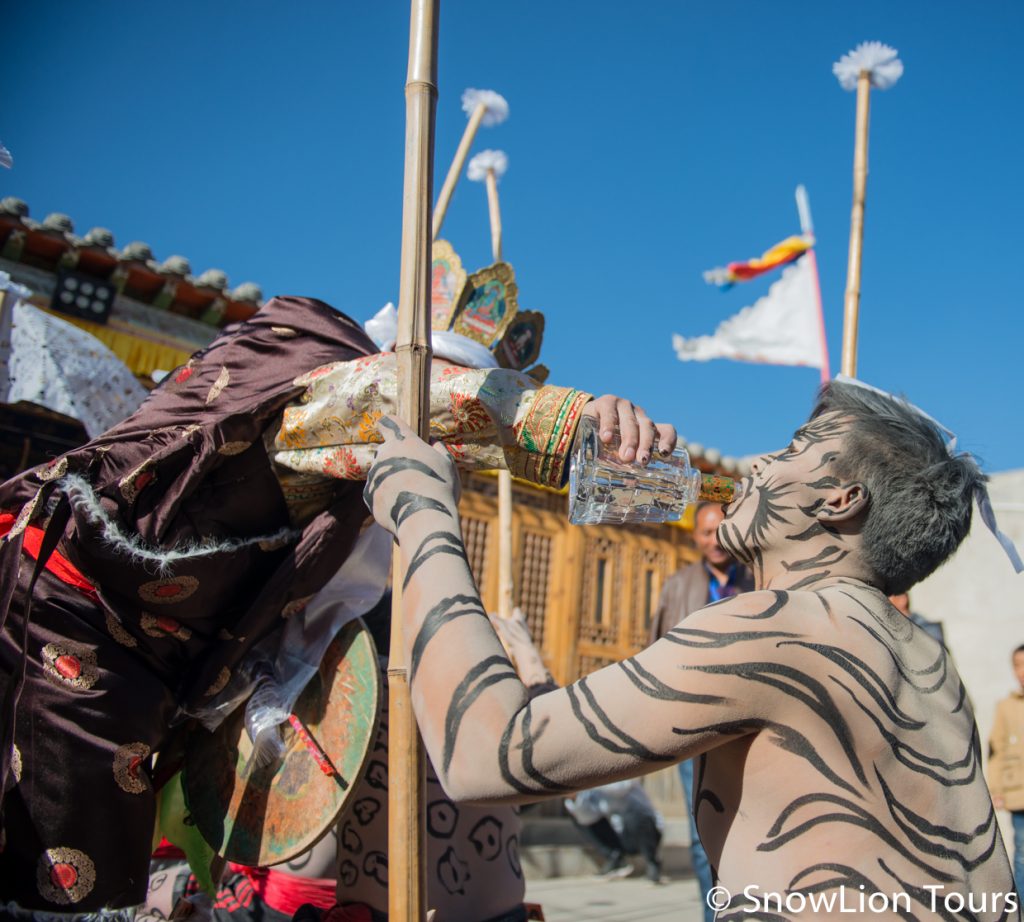
Shaman or Lhawa is pouring liquor in Wutu’s mouth
With a blast of firecrackers, these Wutus perform a ritual dance from the temple and slowly descend towards village. On the half way, five young Wutu go straight to the village, accompanied by the “Lhawa”, led by two big Wutu, drumming and gongs to slow the bouncing posture walked the streets and alleys, in order to eliminate the epidemic ghosts or evil sprits that were scattered inside the homes. They do not enter the homes from front doors, instead they climb up on the courtyard wall and jump over or take stairs to entry the homes of the village.
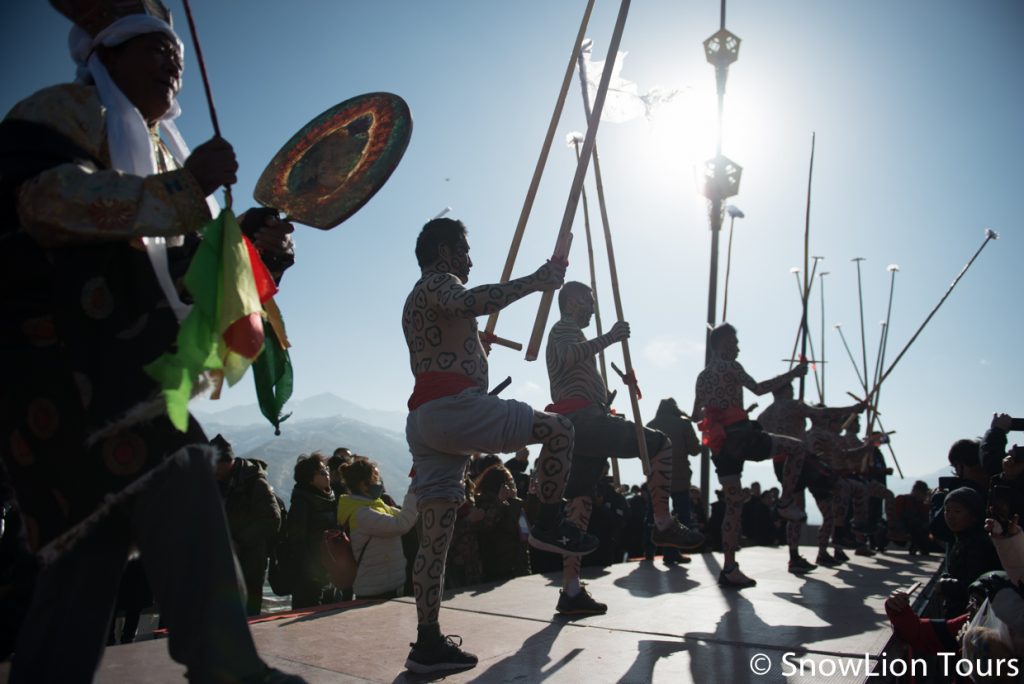
Wutus are performing ritual dance.
Every time they go to a house, they jumped in each room to show the exorcism of evil spirits, and then they ate or mouthed the raw and cooked meat pieces as well as a bread with a hole in center are prepared in advance by the head of the household, and then continued to enter the other courtyard from the roof.
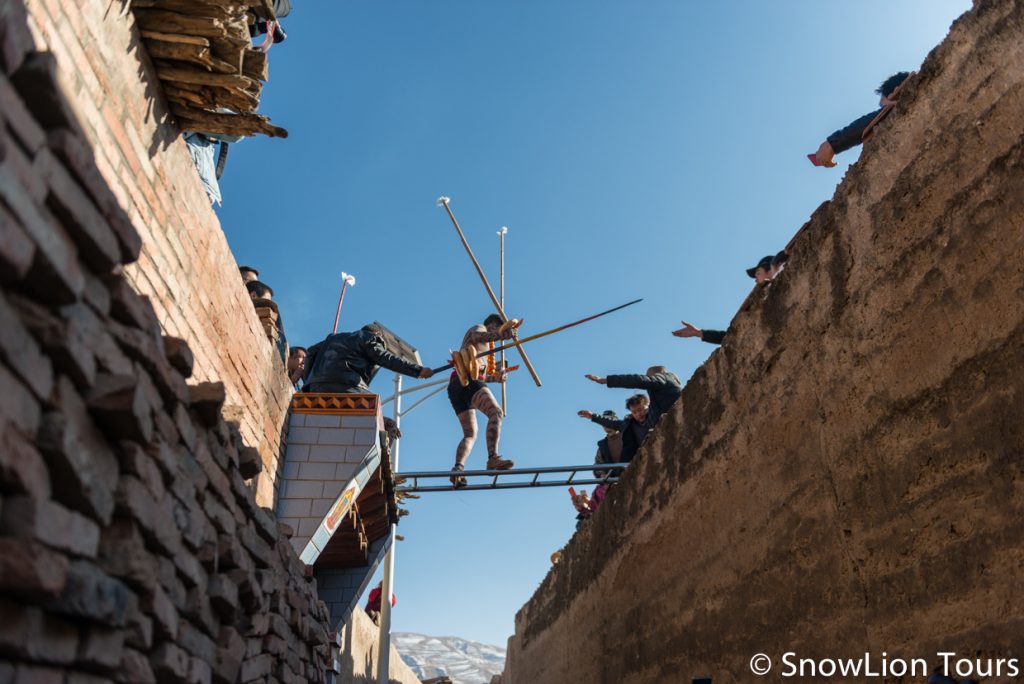
Walking on a stair to reach another family from roof
Interestingly, the reason why these Wutus must enter the houses from the roof and not from the street gates is because the villagers are afraid that the epidemic ghosts who are scattered on the streets will take the opportunity to slip into the house to make a fool. But if Wutu is willing to go out through the gate of the house, it would be regarded as taking the epidemic away from the house without objection.
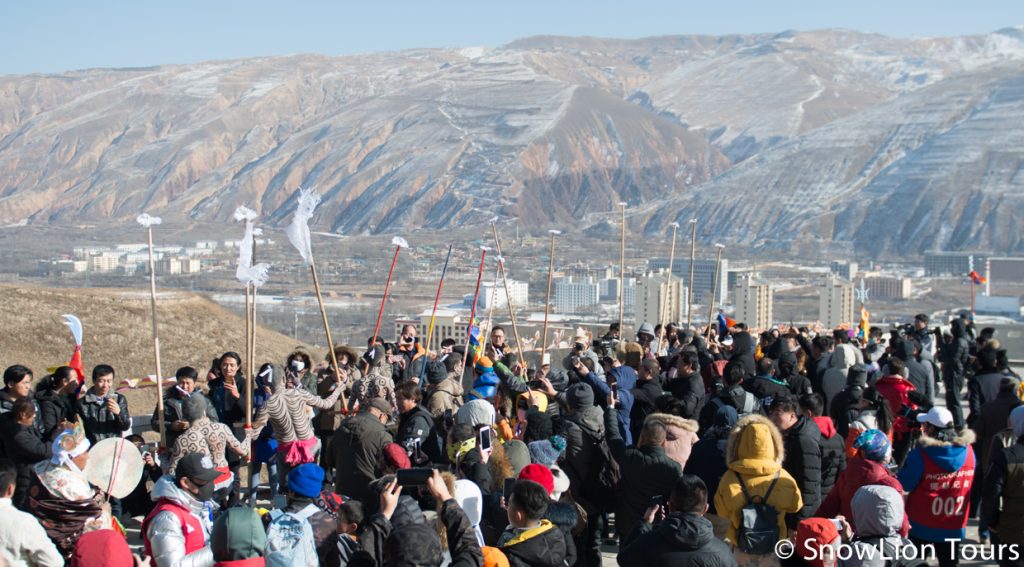
Villages are getting around Wutus
Once they visited all the selected homes, they will reach to old gate at the east of the village. Once again, firecrackers go off and these wutu men run down to the Guchu River which run below the village. All the village yong men follow them with some reciting Mantras and others shouting to the river.
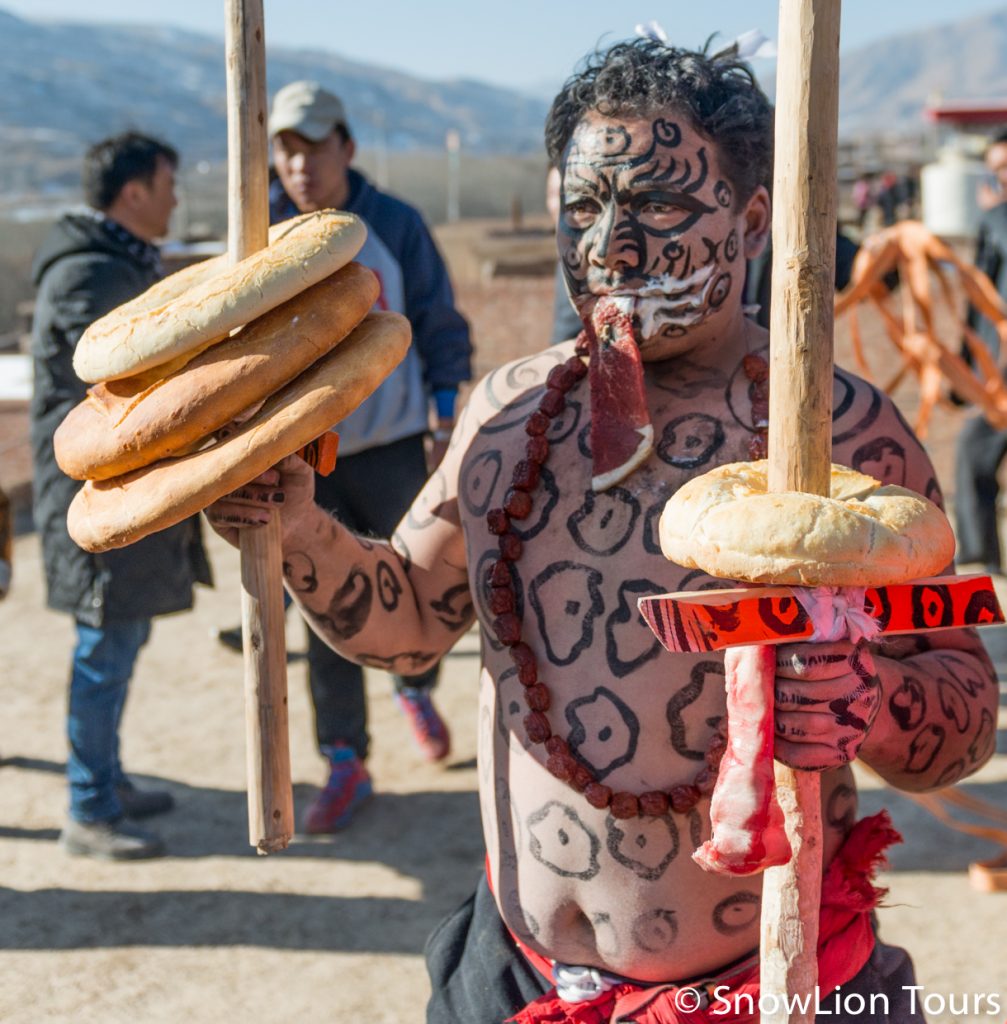
Wutu is holding a piece of raw meat in the mouth
Once they reach at the river side, they will throw the sticks into the river and wash out their painted body. Afterwards, they will wear regular clothe and leave from village.
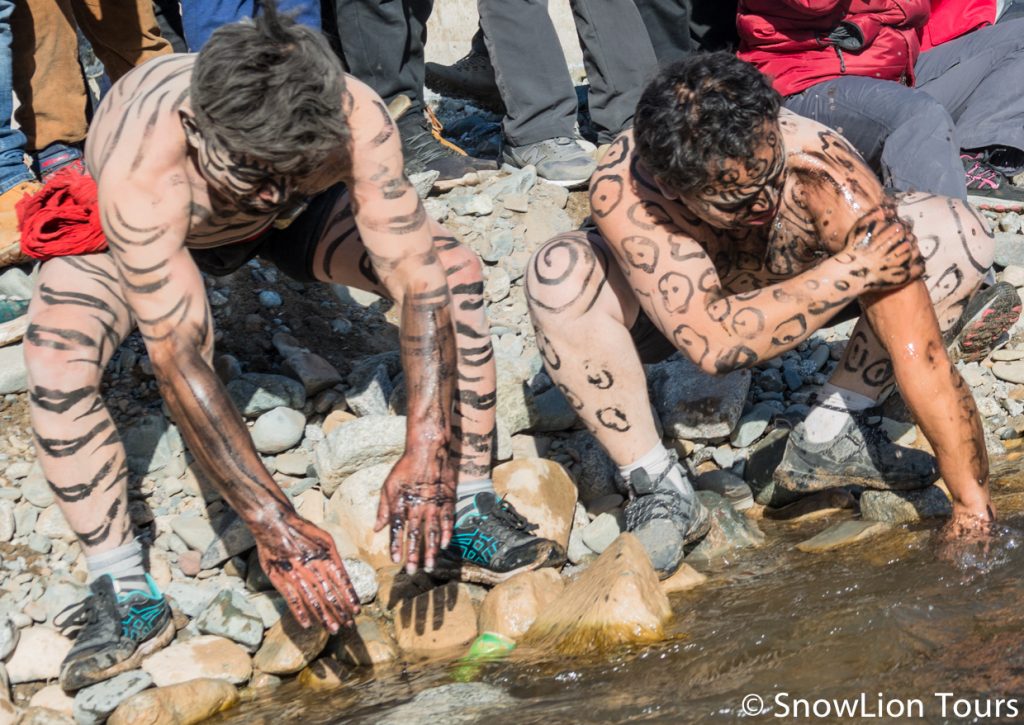
Wutus are washing out inks on the body
The villagers will jump over a fire leading by the Shaman or Lhawa after the ceremony is done at the end of the day. The Wutus can not entry village for the night to make sure all the evil spirits are go away and return back to the village next morning when sun rises. Wishing a happy and healthy year is welcomed this way.
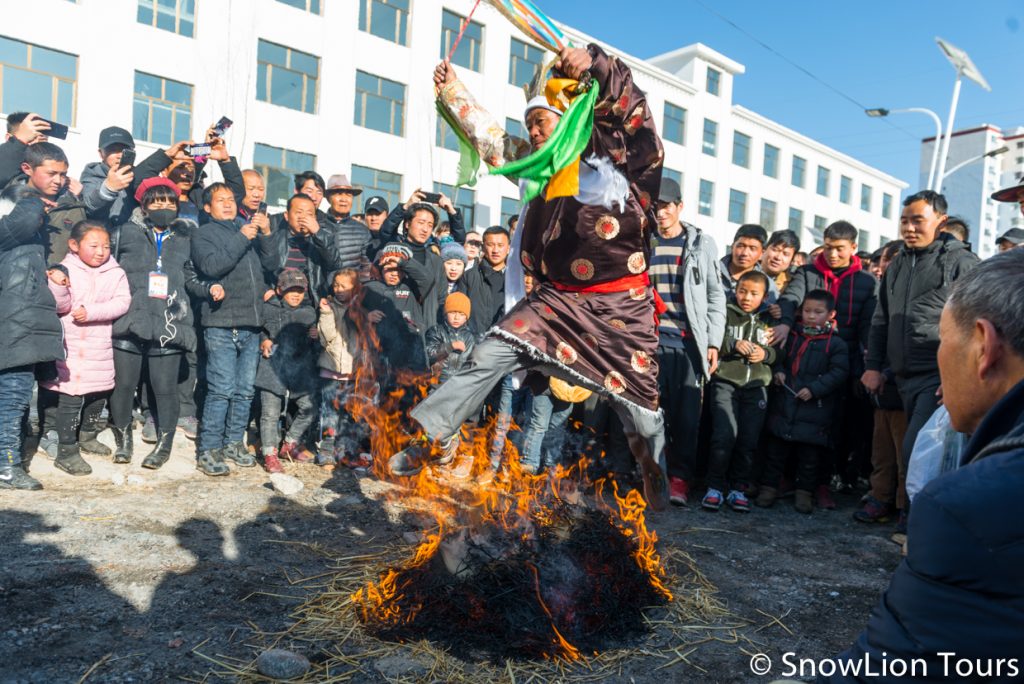
The Shaman or Lhawa is jumping over fire.

